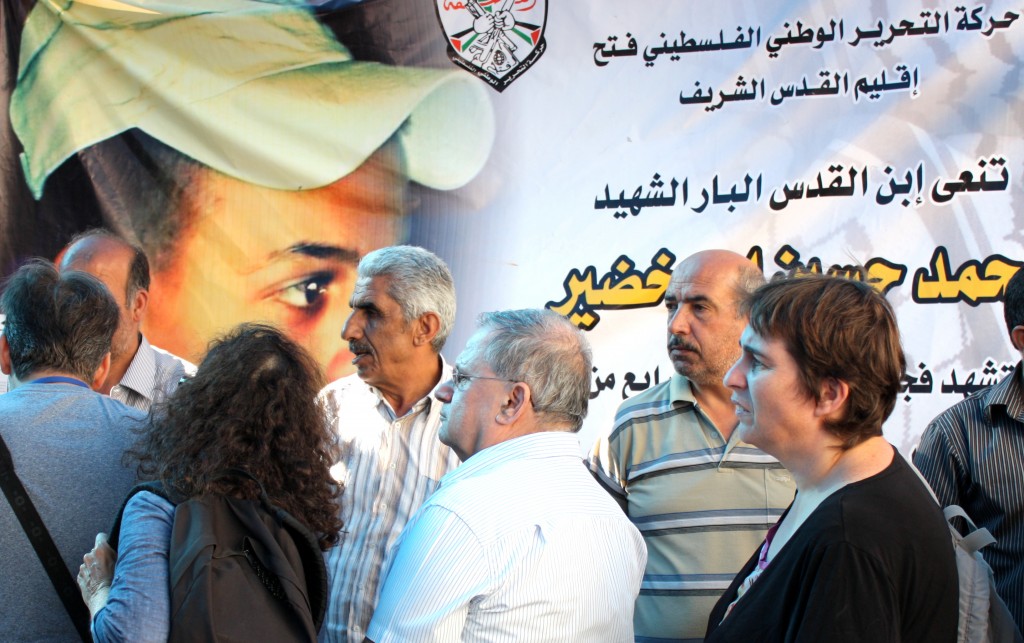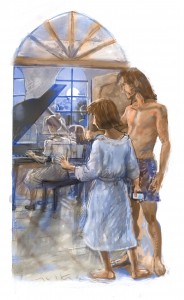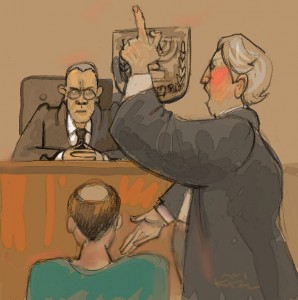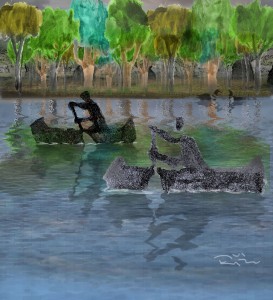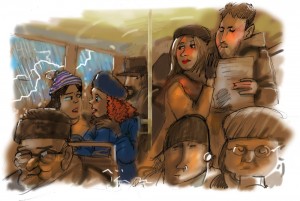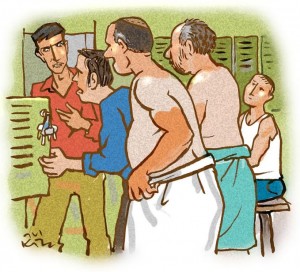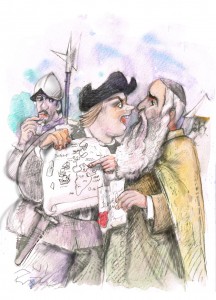Haim Watzman
Elaine had taken the grandkids camping in the cemetery, so Roger was alone for the night. He didn’t like being without Elaine, but he didn’t like having Danny, Aviva, and tiny Gur sleep over either. He was resolved to make good use of the hour or so left before he’d get drowsy and head upstairs to bed.
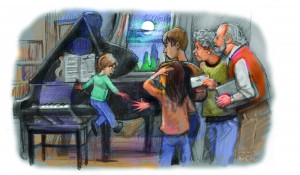
drawing by Avi Katz
A cool breeze from the living room window was blowing on his neck. A nearly full moon was serially obscured and revealed by long, dark clouds that hung low in the sky. He knew this not from looking out the window but from watching the blurred reflection of this celestial game of cat and mouse on the burnished walnut surface of the Steinway baby grand that stood in the far corner of the room, just before it opened into the dining area. The piano was far too big for the space, a fact he had been tactfully reminding Elaine of on and off for the last 23 years, since they moved into this bungalow walking distance from campus. But she would not part with it, and on evenings like this, it was certainly a lovely feature of the room.
He had just opened Karin Rosolio’s article on his ThinkPad when he heard a page turn.
